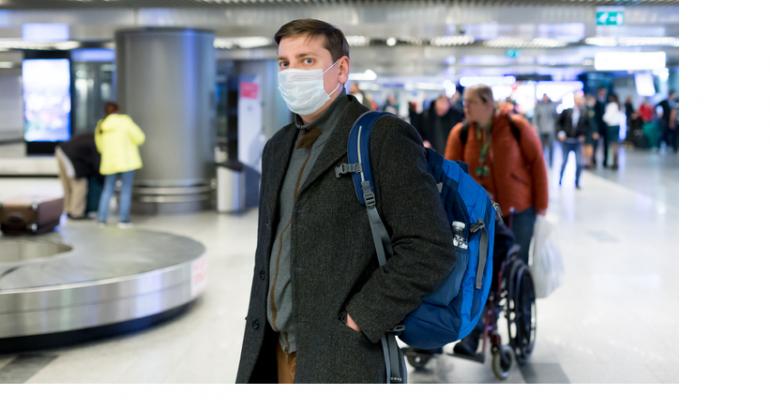On March 2, the Meetings Mean Business Coalition, a 64-member group representing both the buyer and supplier sides of the meetings business, released an open letter to the industry regarding the COVID-19 outbreak and its effect on events in the United States. Here it is:
Dear Meeting and Event Professionals:
At this time, no federal restrictions are in place to prevent travel within the United States. However, misinformation—in the news, on social media and among colleagues—has led to rising concerns and premature calls for meeting cancellations.
As of now, anyone hosting or attending a meeting in the U.S. may proceed as planned, while continuing to consult information from the Centers for Disease Control and Prevention and local public health authorities. Of note: Some companies and city leaders have announced internal travel restrictions, which vary on a case-by-case basis, and primarily involve international meetings.
The situation is evolving rapidly, and we expect the influx of questions and need for resources to remain steady, particularly for front-line meeting and travel employees. In addition to providing updates and coordinating with emergency responders from the health and safety community, the Meetings Mean Business Coalition (MMBC) is committed to providing tailored resources and communications assistance to industry professionals.
MMBC’s coronavirus preparedness toolkit has industry-specific messaging and materials, including talking points, template press materials and sample social media content. The toolkit also includes links to issue roundups, webinar recordings, press statements and business intelligence from MMBC member companies — the U.S Travel Association, Professional Convention Management Association, Events Industry Council, American Society of Association Executives, International Association of Exhibitions & Events, American Hotel & Lodging Association, and Meeting Professionals International.
Moving forward, MMBC will continue to monitor the situation and provide updated information and resources as needed for industry professionals. We will continue to engage with health and safety authorities on any planned or anticipated measures that may impact travel. Currently, authorities are recommending the same personal best practices that are standard for a typical flu season (e.g., frequent hand washing).
As a coalition, we are committed to addressing misinformation and popular misconceptions about business travel in the news and on social media. Our goal is to ensure facts about the coronavirus are understood, and we thank everyone who is assisting in efforts to promote the latest guidance and expert advice.
We recognize the months—even years—of work that precede a major meeting and applaud industry professionals who are managing as best they can through this unfortunate and unanticipated situation. Our hope is that travelers continue to exercise healthy meeting habits and that some reassurance is granted to those hosting and attending meetings in unaffected areas during this time.
On March 6 at 12:30 p.m. ET, MMBC member Events Industry Council and association-management firm SmithBucklin will co-host a webinar on insurance and legal considerations for event planners.
Another MMBC member, the Professional Convention Management Association, is working in conjunction with fellow member Corporate Event Marketing Association to run a webinar series to help meeting professionals through the COVID-19 crisis:
March 10, 3:30pm CT: Get the Facts on COVID-19
March 12, 1:00pm CT: Is Your Event Covered in a Crisis Situation?
March 17, 1:00pm CT: Crisis Contract Preparedness for Suppliers
March 19, 1:00pm CT: Lessons Learned from Toronto’s 2003 SARS Outbreak
Other industry players are promoting the actions they’re taking to keep attendees safe at events. For instance, Events DC, the convention bureau for the nation’s capital, published a press release on March 3 detailing the extra precautions being taken at the Walter E. Washington Convention Center to minimize the chance of coronavirus or flu contamination. Those include:
- An updated facility operations policy to reflect a proactive approach to housekeeping, sanitation, hygiene and food handling; continually educating staff in these areas; providing a ServeSafe-certified food environmentalist.
- Educating employees to recognize the symptoms of flu and to act responsibly if they detect or exhibit flu symptoms.
- Increasing the frequency of cleaning and disinfecting all frequently touched surfaces, including escalator and stair handrails and elevator buttons; doubling the number of hand sanitizer stations throughout the convention center. Complimentary hand sanitation is provided for all on-site show management offices.
- Increased frequency of HVAC system filter changing and testing of HVAC water treatment monitoring to prevent the transmission of airborne diseases.
- Conspicuously placed “Cover Your Cough” signage is located throughout the facility and in all restrooms, and “Cover Your Cough” graphics are on display on the building-wide digital signage system.
- Monitoring daily advisories from the CDC and the WHO and updating protocols in accordance with the recommendations of these agencies.
In addition, Events DC’s public safety team will provide event planners with a briefing during the pre-con meeting that includes a review of its emergency-response plan and sanitation practices, and a private briefing for a meeting group’s leadership will be provided on request.
Lastly, here are three recent articles with useful information for association planners as they grapple with all the decisions around holding an event in the near future in the U.S.
15 ways to help attendees stay safe from contamination: https://www.meetingsnet.com/risk-management/coronavirus-now-affecting-business-events-worldwide
Understand the clauses in your contracts that address postponement and cancellation—and the damages your association might be liable for: https://www.meetingsnet.com/risk-management/insurance-and-legal-guidance-coronavirus-outbreak
If an in-person event must be changed to a virtual event, here’s how to convince your exhibitors that their participation will bring a solid return on their investment: https://www.meetingsnet.com/risk-management/what-s-deadline-event-go-virtual





